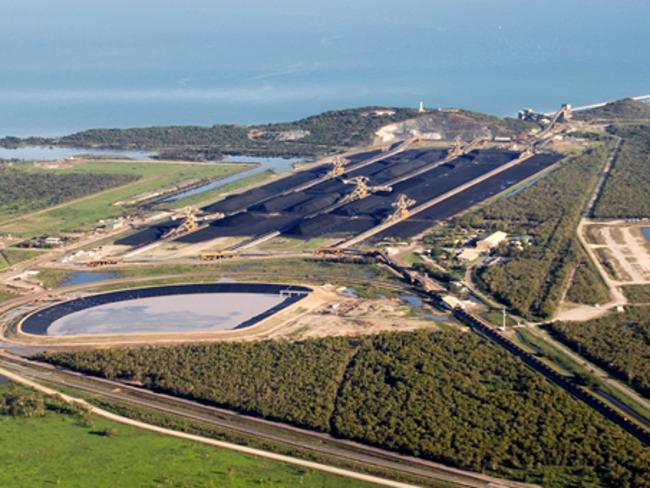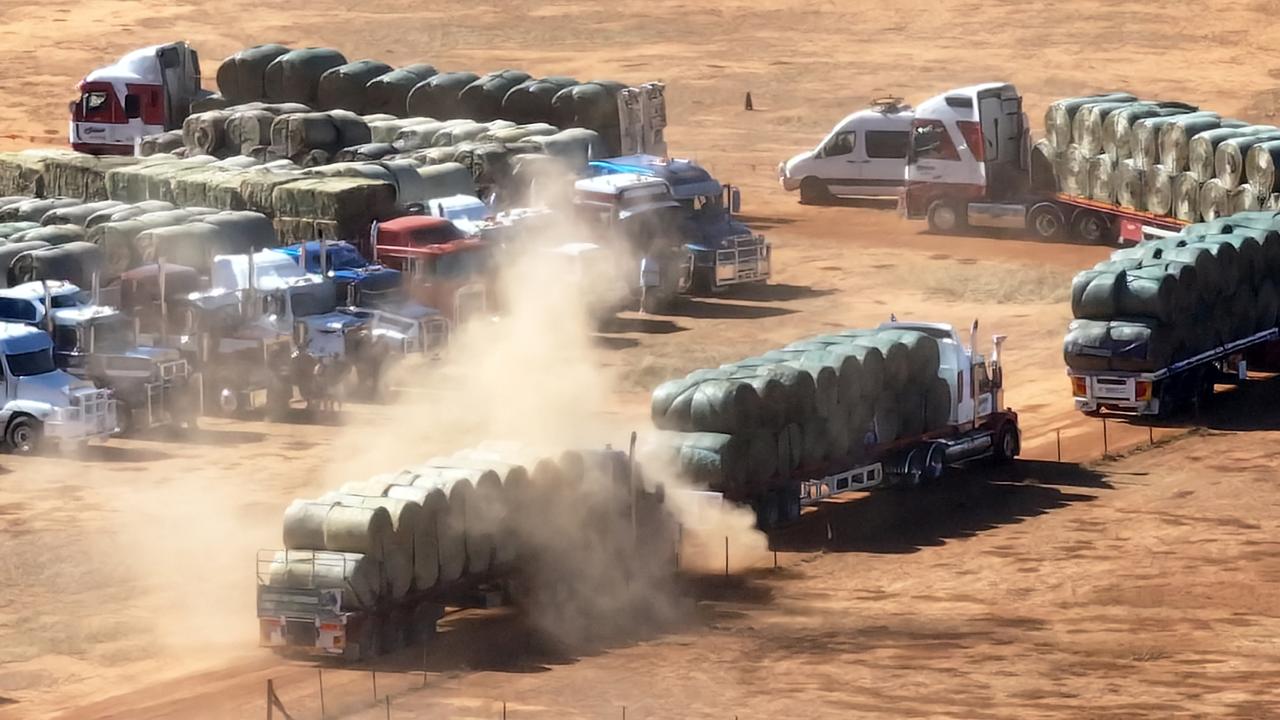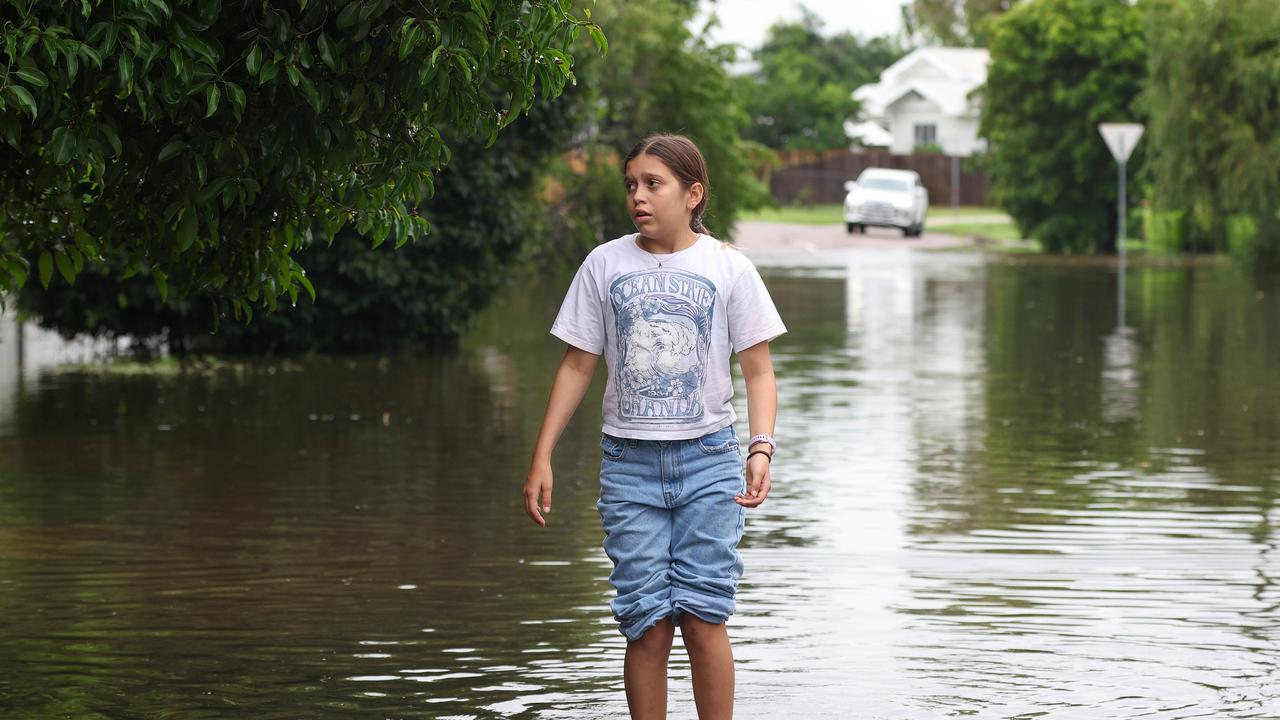Why Adani’s $21 billion Carmichael mine could be unstoppable
IT ENDURED six long years of lawsuits and setbacks — but there’s one key reason why Adani’s mega coal mine could be unstoppable.

IT WILL create jobs and wealth for Queenslanders — potentially at the expense of the climate — but there’s another key reason Adani’s mega coal mine could be unstoppable.
It’s been a six-year slog for Adani to get its $21.7 billion Carmichael mine off the ground, with a lengthy environmental approval process and a number of court challenges thrown in its way.
This year it finally got Queensland Government approval for its mining leases despite concerns about its contribution to greenhouse gas emissions and potential climate change impacts on the Great Barrier Reef.
The project has divided the state, with some welcoming the jobs and royalties it will bring Queenslanders, while others are concerned about its environmental impacts.
Some might say the lengthy process, which also involved Federal Government scrutiny, is evidence of a rigorous process but many might be surprised to know that climate change impacts are not necessarily considered as part of the environmental assessment process.
COURT RULES AGAINST CLIMATE CONCERNS
In an era when concerns about climate change are growing, it’s perhaps a strange quirk of the environmental assessment process that there is no trigger for the Federal Government to consider project that have climate change impacts.
There are only nine matters of national environmental significance that spark Federal Government scrutiny:
• World heritage properties;
• National heritage places;
• Wetlands of international importance;
• Nationally threatened species and ecological communities;
• Migratory species;
• Commonwealth marine areas;
• The Great Barrier Reef Marine Park;
• Nuclear actions (including uranium mining); and
• Water resources in relation to coal seam gas development and large coal mining development.
Climate change is not included, and when then-federal environment minister Greg Hunt considered whether to approve the Adani coal mine, he mainly considered its impact on the Great Barrier Reef and threatened species.
“I think it’s negligent on the part of our politicians that we don’t have a greenhouse gas trigger in federal law,” Environmental Defenders Office Queensland chief executive officer Jo Bragg told news.com.au.
“It’s been called for, for many years ... it’s sensible, appropriate and right but fossil fuel companies lobby against these sorts of changes.
“We certainly need stronger laws to deal with climate change."
The Australian Conservation Foundation took the Adani case to the Federal Court to try and force the minister to consider climate change impacts from emissions that would be produced when the coal was burnt overseas for electricity, but this was not successful.

Justice John Griffiths delivered his judgment in August and said he thought the minister did consider the emissions and accepted Mr Hunt’s argument they would be managed through national and international agreements.
At the time, ACF chief executive Kelly O’Shanassy said it was “absolutely incredible” the government could approve a major coalmine without having to determine the effect it would have on climate change or the reef. The ACF has now lodged an appeal.
Local community group Coast and Country also pushed for Queensland government authorities to consider the climate change impacts of coal mines but this was also denied.
Solicitor Jo Bragg of the Environmental Defenders Office Queensland, which represented both ACF and Coast and Country, said climate change is not specifically referred to in guidelines that cover the assessment of major projects at a state level. While its impacts are still considered, they are not given much weight, and this could be seen in the Adani decision.
“The argument being made was that greenhouse gas emissions can be ignored or given zero weight because even if the mine didn’t go ahead, people would get coal from a different mine and the impact would be the same,” she said.
“We say as a matter of law, that’s wrong.”
Ms Bragg said the mine should be assessed on its own impact, not what other people may or may not do. She said it was like assessing a sewerage plant on whether someone would build another facility further upstream which would also discharge waste into the river.
“It’s simply not relevant what might be the impact of other mines other than the one under consideration,” she said. “We say the law should be correctly applied.”
THE FUTURE OF COAL
While the Carmichael mine now has its final government approvals, it still faces a few hurdles.
An ACF appeal in the full Federal Court hopes to overturn the Commonwealth approval and is due to be heard in March.
Ms Bragg also said the mine still needs a groundwater licence before it can proceed.
“They still don’t have all their approvals,” she said.
The Wangan and Jagalingou Traditional Owners Council have also filed documents contesting registration of an Indigenous Land Use Agreement which Adani says it has made.
Coast and Country decided not to appeal its Adani decision in the Queensland Supreme Court but it has applied to challenge a similar decision on another mine being planned for the Galilee Basin — the Alpha coal mine.
It hopes to take its case to the High Court of Australia and is waiting to see if its application is accepted.
If the group is successful in arguing that emissions from the burning of coal should be considered as part of the impacts of future mines, Ms Bragg said it would set a significant precedent for Queensland proposals.
Unfortunately it’s unclear what impact it would have on the Adani decision.
“We would need to carefully consider any judgment before commenting if it might apply to Carmichael,” Ms Bragg said.
Once it’s built, the Carmichael mine will be one of the biggest in the world. It will include six open-cut pits and five underground mines.
In a press conference today, the Queensland Government spruiked its benefits.
“This is economic prosperity, this is job building,” Resources Minister Matthew Canavan said.
Premier Annastacia Palaszczuk said the downturn of nickel mining had been devastating for regional Queensland and Adani was prepared to hire local residents and set up its regional headquarters in Townsville.
Construction of the mine expected to begin next year, with job ads to appear shortly.
Adani CEO Jayakumar Janakaraj urged Australians to look at the “fact, not just emotions” when asked about the environmental impacts of the mine.
“This project is a net positive impact on climate change in the world,” he said.
“India is a large consumer of coal either way so if Australia doesn’t produce and give India high-quality, highly sustainable mining, it’s going to rely on coal less reliable geographies. “Australia has this moral responsibility to be part of the solution and not just part of the problem.”
Mr Janakaraj said the company also aimed to move towards 60 per cent renewables in the future.

But Ms Bragg said the benefits of Adani’s Carmichael mine had been exaggerated.
“Adani keeps stating that there will be 10,000 jobs but through the Land Court where expert witnesses were called under oath, Adani’s own economist ... said the correct figure was 1464 net jobs,” she said.
She said this figure used modelling that took into account the amount of jobs created once the jobs lost in other industries was taken into account.
“The impacts of climate change are killing the reef right now,” she said. “We’re at a crisis point and action to reduce emissions must be undertaken on an urgent basis.”
She said the Carmichael coal mine was not the kind of project that Australia should be supporting, and not just because of the serious impacts of climate change.
“Queensland has billions of dollars of public debt because of unrehabilitated mine sites where companies went broke and didn’t clean up the sites,” she said. “It has been left up to the public purse.”
She said Australia's laws should be improved to include a climate change trigger so projects that generate a large amount of emissions would automatically be assessed by the Federal Government. Strong positive obligations should also be introduced so that politicians can’t just consider things and then approve projects regardless.
Ms Bragg said this could include having enforceable renewable energy targets, and state and national targets to reduce emissions.
“If it’s a fossil fuel project then basically it has greenhouse gas impacts, the bigger the project, the bigger the impact,” she said.
“No matter where it’s burnt, it has an impact on Queensland, NSW and Australia. It is a global issue but it impacts Queensland and NSW as well.”
LONG ROAD TO APPROVAL
November 2010 — Adani Mining Pty Ltd begins approval process to establish two new mines and a rail line in the Galilee Basin in north Queensland after Premier Anna Bligh declared the Carmichael coalmine and rail plan a “significant project” which could generate more than 11,000 jobs.

May 2014 — Deputy Premier Jeff Seeney announces the state’s co-ordinator-general approved the $16.5 billion mine and rail project subject to 190 conditions. Final approval rests with federal Environment Minister Greg Hunt
July 2014 — Mr Hunt approves Adani’s proposal
August 2015 — Federal Court rules in favour of a legal challenge by Mackay Conservation Group. MCG says Mr Hunt failed to take into account advice on the threatened yakka skink.
October 2015 — The federal government re-approves Carmichael coal mine subject to “36 of the strictest conditions in Australian history”.
April 2016 — Queensland government approves mining leases for Adani DECEMBER 5, 2016 — Queensland and federal governments give final approvals to a rail project associated with the project.
December 6, 2016 — Queensland Premier Annastacia Palaszczuk meets Adani Chairman Gautam Adani in Townsville. Adani announces construction will begin in June/July 2017.
— With AAP




